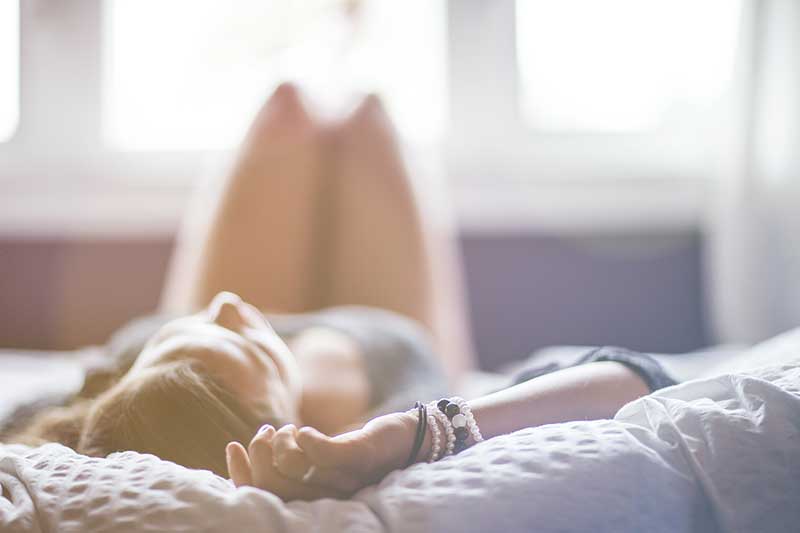
Sleep is in short supply these days. Many of us don’t get enough of it. We go to bed too late, and get up too early, and when we do get to bed, we lie there staring at the ceiling, running through to-do lists, fretting about the state of the world, and diagnosing ourselves with random diseases (just me?).
We suffer from insomnia and we suffer from sleep apnea. In America, two out of three people are overweight or obese, which is an exacerbating factor for apnea.
And anyone who has ever been a primary caregiver to an infant knows what serious sleep deprivation feels like. At some point those people have all probably wondered if they can die from lack of sleep, and even Googled it.
I did. The answer: probably, but you’re unlikely to just drop dead on the spot from staying awake – you’ll probably fall asleep first. Rather, sleep deprivation is one of those things that chips away at your health and quality of life, until you die of some related condition, like diabetes or hypertension.
How much sleep individuals need varies, but the U.S. National Institutes of Health suggest that school-age children need at least 10 hours daily, teens need 9-10 hours, and adults need 7-8 hours. They report, however, that nearly 30% of adults are getting less than 6 hours of sleep a night.
And it seems like every day a new study is either discovering some new group that isn’t getting enough sleep (today it’s middle aged women), or warning of some new terrible consequence of not getting enough sleep.
What are all these negative effects? They’re far too numerous to list. But in brief, besides the aforementioned hypertension and diabetes, the well known outcomes, either direct or indirect, of insufficient sleep include but are not limited to:
- Weight gain
- Increased cortisol levels
- Decreased immunity
- Depression
- Heart disease
Like I said, those are among the better known effects of insufficient sleep. Here are a few of the lesser known ones, some of which are worse than others, but none of which are good.
It makes you dumber. You need to sleep in order to learn, reason, and remember. Lack of sleep impairs attention, focus, concentration, reasoning, and problem solving. Also, when you sleep you consolidate memories, so if you don’t sleep you’ll forget what you learned.
It ages you, and makes you feel less attractive. Sleep helps you produce new collagen, a factor in skin elasticity, so it helps prevent wrinkles. A 2013 study released by the University Hospitals Case Medical Center found that good sleepers had significantly lower “skin ageing scores” than poor sleepers, and they also had significantly better perception of their appearance and physical attractiveness compared with poor sleepers. The study indicates that chronic poor sleep quality is associated with increased signs of intrinsic ageing, diminished skin barrier function, and lower satisfaction with appearance.
It turns you into a jerk. Research by Amie Gordon at the University of California, Berkeley found that the poorer the sleep among test subjects, the less grateful and more selfish people were the next day.
It kills your ability to show and recognize positive emotion. According to David Dinges, a professor of psychology and the director of the Unit for Experimental Psychiatry at the University of Pennsylvania, “When people get sleep-deprived, they don’t show positive emotion in their faces,” A sleep-deprived person will still have a neutral face despite saying they are happy. They are also unable to recognize other people as happy, and will interpret a positive look as either neutral or negative.
It gives you brief blackouts and blindness. Among the most alarming effects are “microsleeps,” which can last up to two minutes. A person’s eyes may stay open but during the microsleep they are not responding to sensory stimuli or processing information. These events are dangerous when driving, and several disasters have been attributed to microsleeps, including an Air France crash that killed everyone on board, and the Chernobyl nuclear reactor accident.
It decreases sex drive. A 2011 study at the University of Chicago found that men with poor sleep patterns have significantly lower levels of testosterone than those who are well rested, which results in a lack of sex drive.
What treatments and services can your spa offer to enhance guest’s sleep? Click here for four examples of spa sleep-related offerings.
Spa Executive magazine is published by Book4Time, the world’s most innovative spa, salon, wellness, and activity management software. Learn more at Book4Time.com



